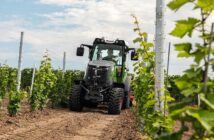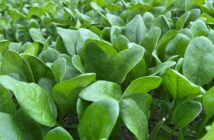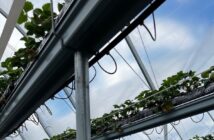A pioneering new project in Lincolnshire using 3D camera technology to identify when broccoli is ready for harvesting has today been praised as ‘world leading’ by Farming Minister George Eustice.
The Lincoln University project marks a key step towards the development of the world’s first fully robotic harvesting system for broccoli which could eventually be rolled out nationwide, significantly reducing costs for farmers.
This is just one of two exciting projects in Lincolnshire to share £800,000 investment from government and industry as part of the Agri-Tech Catalyst. The second project is innovating the development of vitamin D enriched eggs.
Speaking ahead of the annual Cereals Show in Lincolnshire, George Eustice said:
“Lincolnshire is leading the way when it comes to applying new technology to our food and farming industry, from the use of 3D cameras as a harvesting aid on broccoli to enriching eggs with vitamin D.”
“We want to see our agriculture sector grow, become more competitive and more profitable which is why we are supporting projects like this through our agri-tech strategy.”
The two projects are:
· 3D Vision Assisted Harvesting of Broccoli – led by Lincoln University, in partnership with R Fountain and Son, it will test 3D camera technology to identify when broccoli are ready for harvesting, significantly reducing production costs. It has received £138,000 Government funding, together with £40,000 from the private sector.
· Sunshine Eggs – led by Noble Foods, in partnership with DSM Nutritional Products, it will develop vitamin D-enriched ‘sunshine’ eggs, by testing different hen diets, to help reduce Vitamin D deficiency in humans. It has received £124,000 Government funding, together with £496,000 from the private sector. Its poultry, and lead egg packing centre are based in Lincolnshire.
Project lead Professor Tom Duckett, group co-ordinator of the Agri-Food Technology Research Group at the University of Lincoln, said:
Broccoli is one of the world’s largest vegetable crops and is almost entirely manually harvested, which is costly. This technology is seen as being an important move towards developing fully automatic robot harvesting systems, which could then be used for a variety of different crops. In all our agri-related research work, our mission is to develop new technological solutions for the business of producing food through agriculture.



